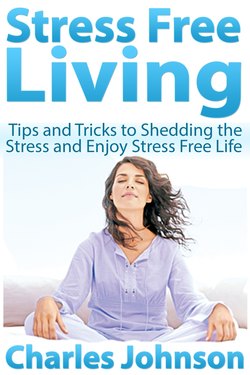Читать книгу Stress Free Living: Tips and Tricks to Shedding the Stress and Enjoy Stress Free Life - Charles JD Johnson - Страница 4
На сайте Литреса книга снята с продажи.
Introduction
ОглавлениеStress, it seems unavoidable because life itself is full of situations that cause stress and anxiety.
Things that seem out of our control just stack up until we feel overwhelmed and unable to cope.
What is stress? Stress is pretty much anything that causes strain to our bodies; it can be physical, emotional, or psychological.
Basically, stress is our body’s natural reaction to something that has happened. Some stress is not harmful to us; that sort of stress is referred to as eustress.
Eustress can be called positive stress, which seems at odds with how we normally think of stress. However, according to the above definition, stress is anything that causes strain on our bodies, so what kind of stress causes strain in a good way?
The rush you get when playing sports, that adrenaline rush is a type of stress, but it is a good feeling.
You might feel the same thing on a roller coaster, skiing, or anything that we find exciting and thrilling; it releases adrenaline and cortisol, which causes the heart rate to increase, diverts blood flow to our main muscle groups all of which give us a push of energy and a quick increase in strength.
That response to stress, good or bad, is called the fight-or-flight response and it is designed to help humans get out of stressful situations quickly.
When the danger is gone, everything goes back to normal and adrenaline and cortisol will no longer be released into the body. Roller coasters are an example of how we willingly trigger that response for fun.
Stress that is negative or harmful to us can be broken down into two categories, acute stress, and chronic stress.
Acute stress is stress that occurs short term, it is the stress that we feel when a situation causes us distress. Acute stress is the typical stress that people encounter and deal with on a day-to-day situation.
Chronic stress is stress that is long term and very damaging to the human body. The body’s response to stress is supposed to be just to get us out of danger, but when a person is subject to chronic stress, the body is in that fight-or-fight mode for extended periods of time, causing damage.
Chronic stress can lead to a weakened immune system, diabetes, hair loss, heart disease, obesity, sexual dysfunction, ulcers, hyperthyroidism, anxiety disorders, periodontal disease, and insomnia.
Both acute stress and chronic stress can cause weight gain, weakened immune system, heart disease, high blood pressure, increased risk of stroke, increased chances of psychosomatic illness, emotional problems such as mood swings, anger outburst and depression, declining cognitive functions, insomnia, the tendency to overeat, and a chance of reaching a breaking point, either total burnout or a mental breakdown.
Some of the symptoms of stress and ways that stress can make us feel are headaches, lingering colds or an increased tendency to become sick, you have trouble sleeping at night, you have trouble thinking clearly, you feel anxious in general, you feel overwhelmed, feelings of frustration, moodiness, and a lowered sex drive. You might find that it is harder to think and that you make mistakes more.
Living with stress is not normal and it is not something that you have to do. You can manage your stress and you can make some changes to your life to help cut out some of the stress before it even begins.
